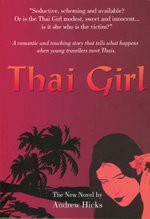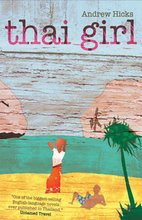
Mama would therefore say that her Thai is poor, but although she was only at school to the age of twelve, she can often be seen poring over her books on Buddhism, reading without spectacles for hours on end. Every morning early she has prepared rice for the monks and is out at the gate giving alms as they come by. The temple and Buddhism are an important part of her life.
Cat tells me she was married to her Papa at a very young age... they were to raise seven fine children. What a tough life that must have been keeping so many mouths fed. I gather that at first they were landless and moved from village to village several times while Cat was little. Then Mama inherited some rice land and they settled here in Ban Mahachai. Now they have one of the best houses in the village, thanks to the children sending money home, but they suffered real hardship in the early days. Imagine the struggle to feed a growing family, collecting roots and leaves from the fast shrinking forest, hunting, fishing and doing the hard manual work of rice cultivation, while tending so many energetic kids.
The reputation of Thai men as husbands is not outstanding and so it's often the women who are the backbone of the family and of the community. I can thus only call it heroic that Mama has produced so many attractive and decent children under such tough circumstances and to still be her own, modest, gentle self. Cat thus has three sisters and three brothers while she is number six in line. She has loads of stories of childhood to tell but they must stay in their own private domain.
Suffice it to say that I now salute Mama as a strong woman who has lived her life with quiet strength, always dedicated to her children. If in life there are those who are givers and those who are takers, Mama is a giver one hundred percent. There's nothing she will not now do for us as she bustles around tidying up, tending the vegetables and watching over the house as the elder mother hen.
She's not a lot older than me and has, I think, been suffering more than a little from empty nest syndrome. Such is the crisis of rural society that the land can no longer support the increasing population and so they all have to find work elsewhere. All the children except Cat's older brother Mangorn who lives with his family in a nearby village, now have new lives far away. In a society where the extended family is the norm and you raise a big family in the expectation that they'll be around to support you in old age, it must be tough when they're not there any more.
It was thus a great joy for Mama that Cat and I came to build our house here, especially as she now stays with us and so has family around her. Whenever we go away, she seems to age faster, but when we come back again she puts on weight and the stiff knee she suffers from seems to loosen up a bit.
It's been an interesting experience to immerse myself in a Thai family and it's strange how you can develop a rapport with someone you can hardly even begin to talk to. I really like and admire Cat's Mama and this is my tribute to her.





















